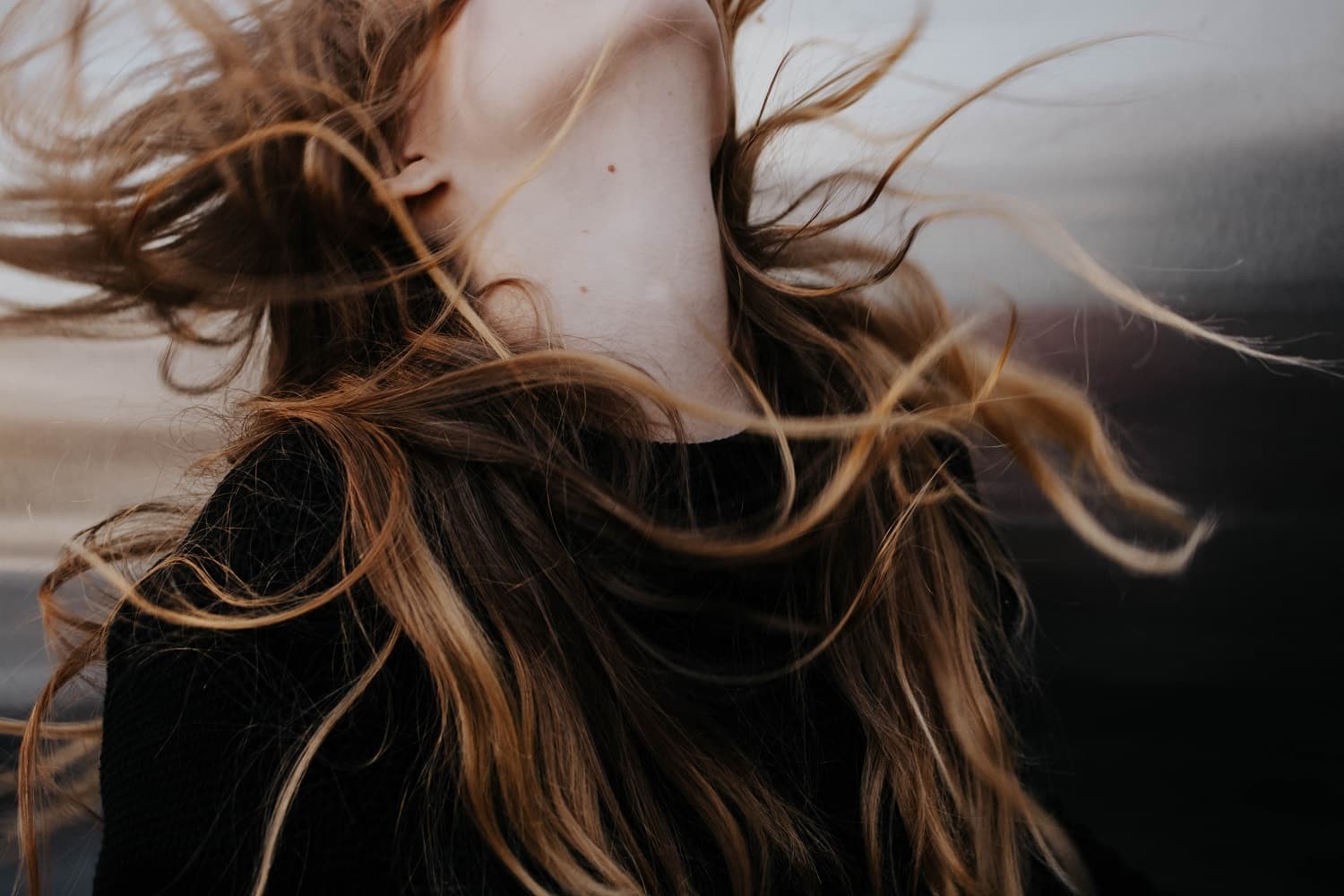
Healthy hair equates with a balanced qi. In Chinese medicine, qi refers to the vital energy that flows within and around us to keep us moving, breathing and alive. An imbalanced qi exposes your mind and body, including your hair, to all sorts of diseases. Acupuncture can help improve the blood circulation in the scalp to promote hair regrowth in people with self-perceived thinning hair, androgenic alopecia or another type of hair loss. This guide explains how this oriental medicine is used in the treatment of hair loss in women and men.
What is Acupuncture?
Acupuncture is an ancient Chinese practice which, through the use of needles, balances the flow of qi to alleviate symptoms of illness, injury or disease and restore health. The practitioner inserts very fine needles into the skin at specific acupuncture points (anatomic points in the body), sometimes using heat, friction, suction or electromagnetic impulses, to stimulate the acupuncture points (each corresponding to specific organ systems in the body). The stimulation of these acupuncture points frees any blocked energy (qi) within the body and restores the individual back to maximum health.
Several clinical studies have proven the efficacy of acupuncture treatments as an adjunct to Western medicine, especially in treating or managing chronic pain, headache, menstrual cramps, dental pain, neck pain and a variety of medical conditions. Acupuncture has an anti-inflammatory effect that controls the body's release of cytokines, which cause all sorts of physical symptoms such as body aches and rashes.
Modern medicine believes acupuncture works by stimulating the nervous system to release certain biochemicals (such as neurotransmitters and hormones) that regulate our bodily functions, immune system and pain threshold. As a result, acupuncture can be an effective hair loss treatment.
What is Hair Loss?
Alopecia is the medical term for hair loss, a condition where the head or body experiences excessive loss of hair. It can be triggered by stress, hormonal imbalance, poor diet and lifestyle, an underlying health condition or genetic factors. Permanent hair loss is often caused by the latter, particularly androgenetic alopecia that may affect both men and women. Female pattern hair loss is characterised by a significant reduction in hair volume. On the other hand, male pattern baldness manifests through a receding hairline and bald patches at the crown of the head.
On the other hand, temporary shedding may be the result of frequent use of heated styling tools, hairstyling products with harsh chemicals, or wearing your hair back in a tight braid or ponytail. Some patients with alopecia have immune system problems, while there is also such a thing as chemotherapy-induced alopecia that is experienced by people receiving cancer treatments.
Conventional medical treatments, such as steroid injections, topical solutions and oral corticosteroids, aim to increase anagen hair rate to stimulate hair regrowth. Unfortunately, these come with adverse effects such as rashes, acne, itching or burning sensation on the scalp and irregular menstrual cycle, to name a few.
How the Flow of Energy Affects Hair Loss
Acupuncturists believe that infinite life energy circulates throughout the body along the meridians, otherwise known as energy highways, in defined cycles. All humans who are in a constant energy exchange with the world depend on this energy, along with energy derived from food and air. The strength of your hair also relies on good nutrition and the balanced energy flow in your internal organs. An obstruction in the flow may cause the hair to become brittle, weak, and consequently break off or fall out. Acupuncture ensures a healthy head of hair by reconciling any energy imbalances that may affect the health of your hair.
How Acupuncture Prevents Hair Loss
Many acupuncturists use their practice in the treatment of alopecia. They usually use it in combination with a specialized diet and Chinese herbal medicine. According to Traditional Chinese Medicine, hair health is governed by the state and circulation of the blood. It also states that hair health is governed by:
- The kidneys, which provide detoxified blood used to nourish the hair of the scalp
- The lungs, which nourish body hair with moisture and oxygen.
- The adrenal glands that when overworked (due to stress), may also cause hair loss
When these organs are not running efficiently due to illness or unhealthy lifestyle habits, the hair follicles will not receive nourishment from the blood vessels, and this may affect healthy hair growth.
Insufficient blood flow in the scalp will lead to the termination of hair follicle growth, causing reduction in hair density which eventually results in hair loss. By using needles to stimulate kidney and lung energy, the acupuncturist improves the flow of qi, which in turn reduces toxicity in the blood and increases blood flow to the scalp. This repairs the damaged cells, promotes new cell growth and strengthens hair roots and follicles that both assist with new hair growth.
If you are interested in finding out more about how acupuncture can help with hair loss, please speak to a trained acupuncturist. You can even enquire about the herbal supplements and other modalities which they would normally combine with their acupuncture treatments.
Find out about other effective natural hair loss treatments.
Originally published on Apr 20, 2010








